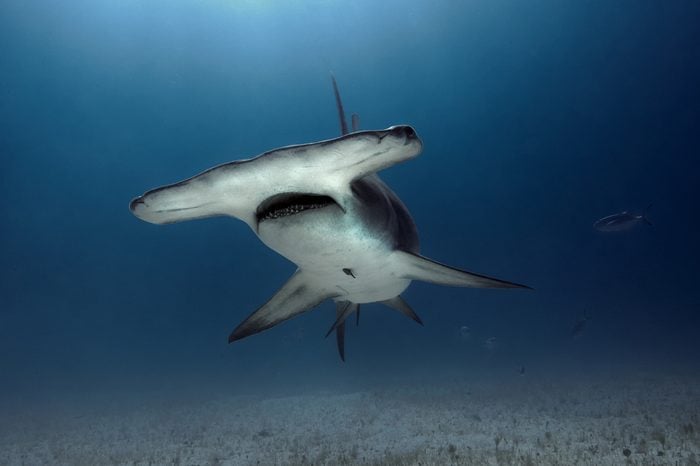
There are various types of sharks
There are more than 400 shark species. And although most people are familiar with a few specific species, such as the great whites, there are all different types of sharks. In fact, not all sharks are large, nor are they all carnivores. The lantern shark is only eight inches long, and there is one hammerhead-type shark that surprisingly eats mostly plants. Here are more fascinating facts about oceans.
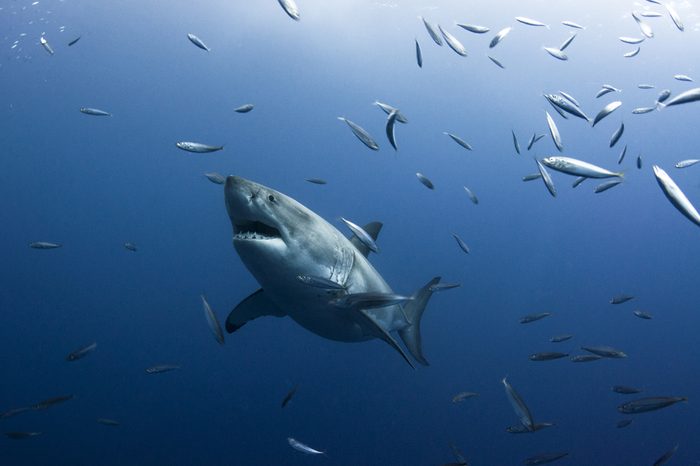
Sharks are picky eaters
Movies and TV shows perpetuate that sharks love eating humans. In reality, sharks are notoriously picky eaters—and humans just aren’t tasty enough. Culum Brown, a fish biologist at Macquarie University, says sharks respond strongly to the smell of fish and seals instead. Plus, humans are hard for sharks to digest since humans have more than 200 bones in their body. Read up on these things you never knew about shark attacks.
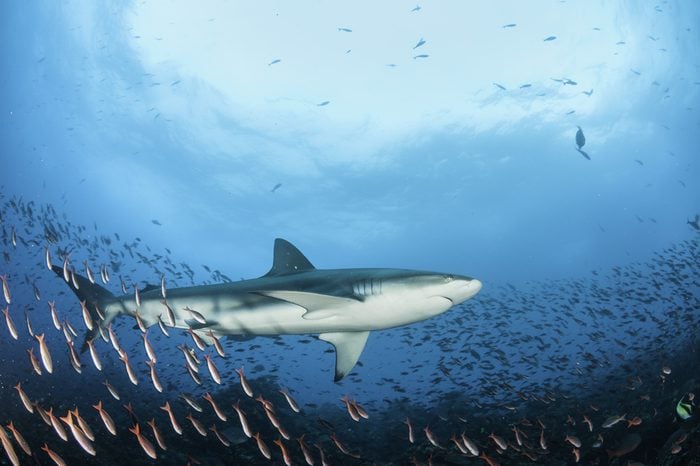
They build maps in their heads
Sharks navigate using mental maps. But there are a few theories on how they create these maps, the BBC reports. One idea is that sharks use their ability to sense magnetic fields, although others believe sharks can create these maps thanks to signals from ocean currents, water temperature, or smell. Research also shows that sharks have amazing memory—so the maps they create will last a long time. They can be taught to recognize shapes and optical illusions that they will remember for at least a year.
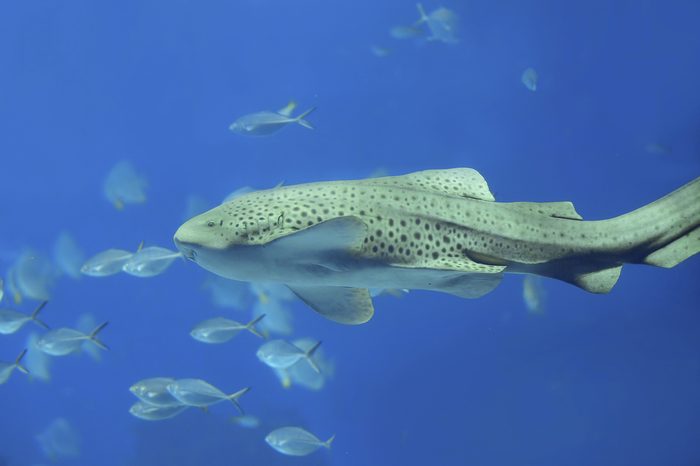
Some sharks are self-sufficient
Some people believe that great white sharks are loners, but others say this theory is blown out of proportion. When these sharks are together, however, the females usually run the show. Similarly female-focused, there are reports of virgin births by zebra sharks—meaning the female sharks could reproduce without mating. Read up on these fascinating (and reassuring) facts about sharks.
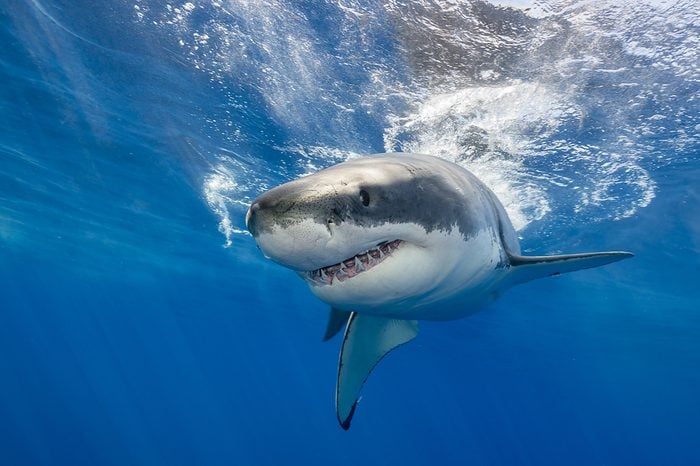
Sharks are advanced
There is so much to learn from the way sharks live because their natural abilities and features are unique. For example, unlike fish, sharks don’t actually have scales. Instead, they have tiny teeth that point backward, which help them swim faster. They also don’t have skeletons. Their body is made of cartilage instead of bone. This lighter skeleton is also one of the many reasons why sharks are fast swimmers.
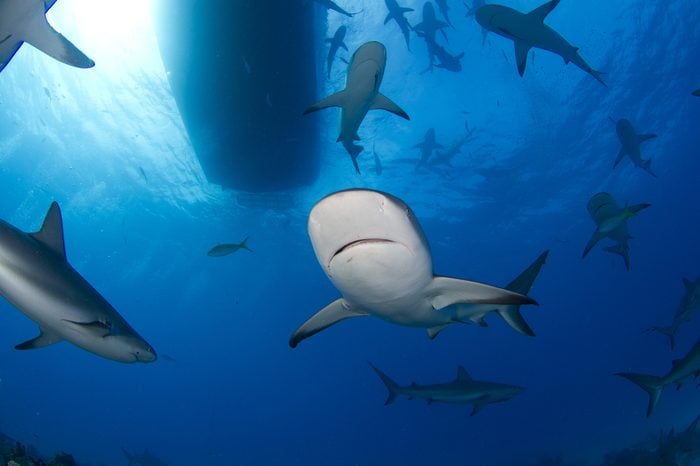
Sharks are endangered
Certain shark species are in danger of going extinct due to human impact and activities. More than 100 million sharks are killed every year. Although banned in the United States and some other countries, shark finning is still one of the primary causes of endangerment. The fin is used to make shark fin soup, which is a delicacy in China. Other threats include climate change and habitat degradation.
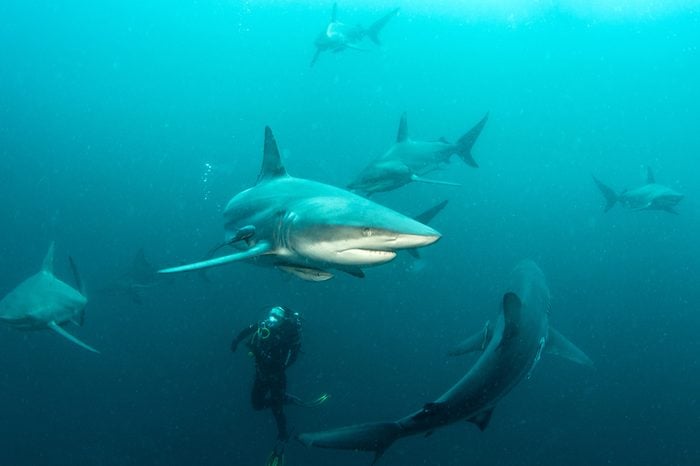
The odds of dying by shark attack are slim
People have better odds of dying from lightning than a shark attack, Business Insider reports. People also have a greater risk of dying from heart disease or the flu. Check out these animals that are deadlier than sharks.
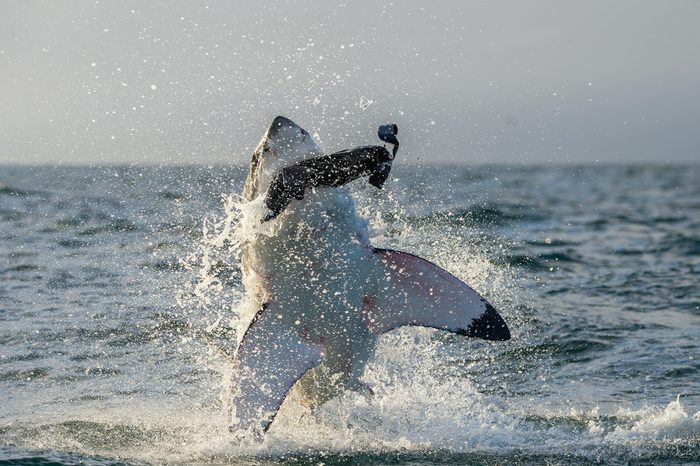
Sharks are an important part of the food chain
Sharks are a key part in keeping the ocean system healthy. They have been top predators in the sea for more than 450 million years. In fact, they arrived 200 million years before dinosaurs. Shark nostrils are extremely sensitive, so depending on the species, sharks can smell their prey (or their potential mates) from miles away. Next, check out these science “facts” that have been proven wrong.
